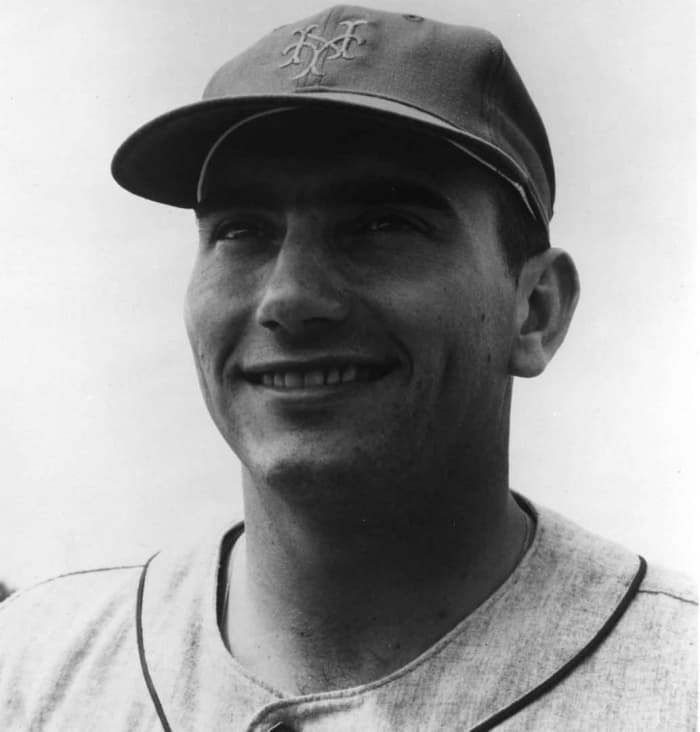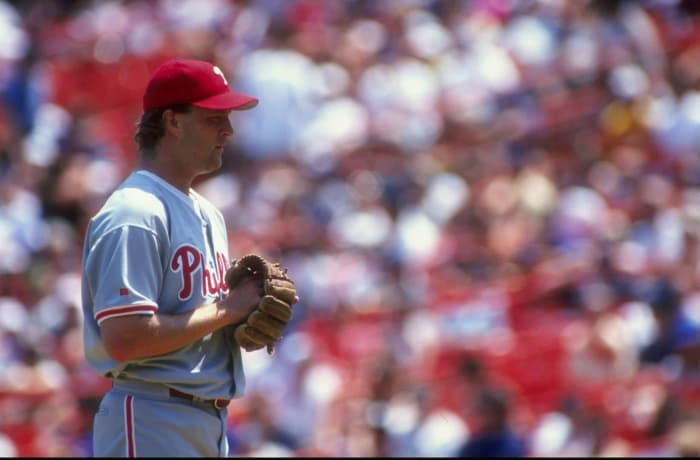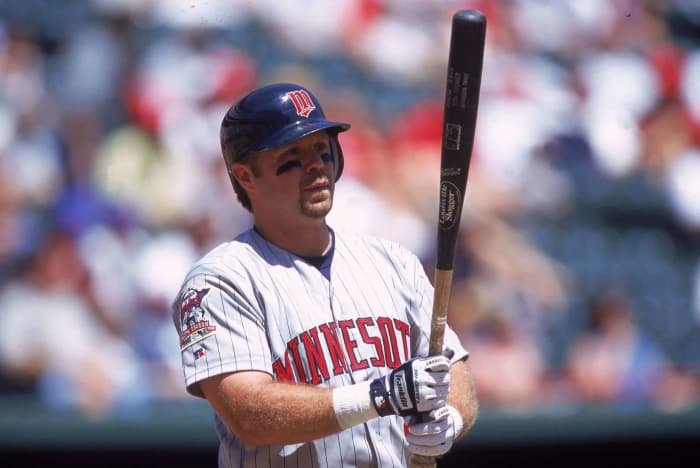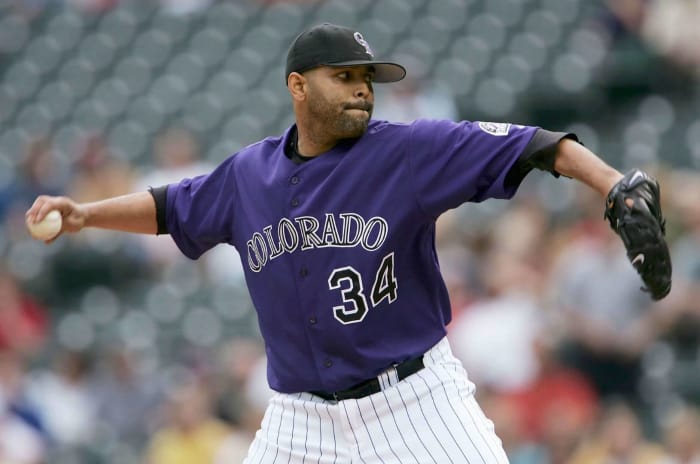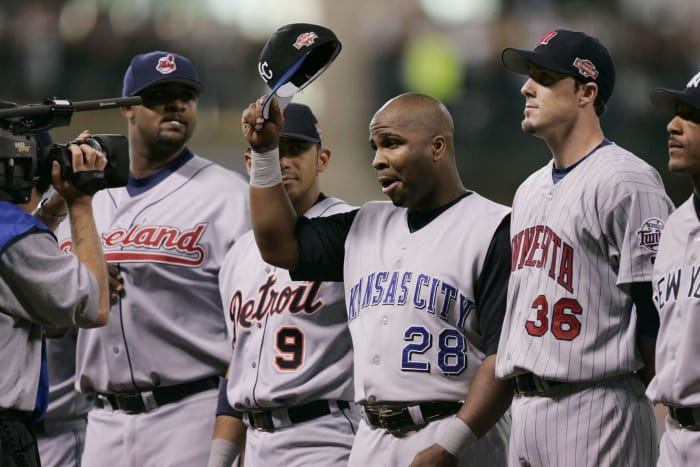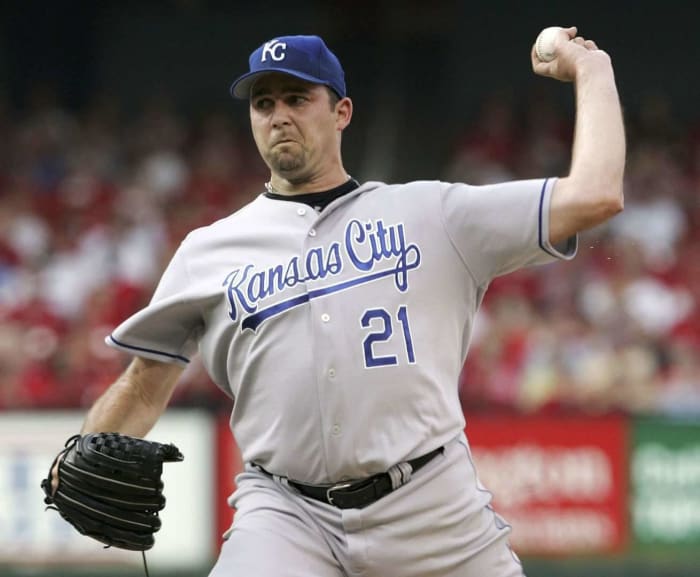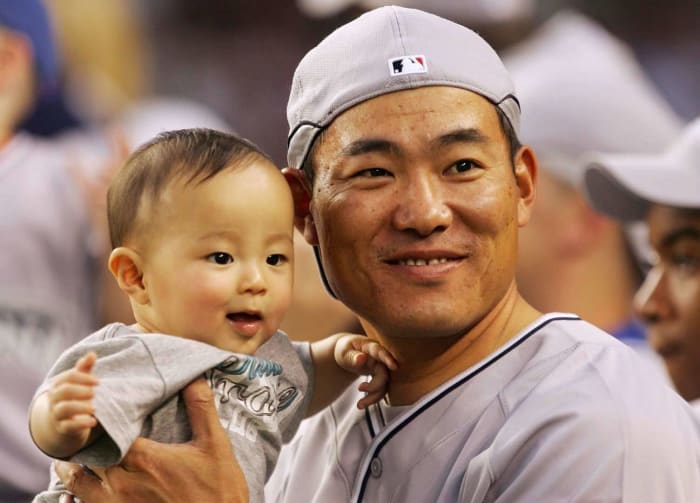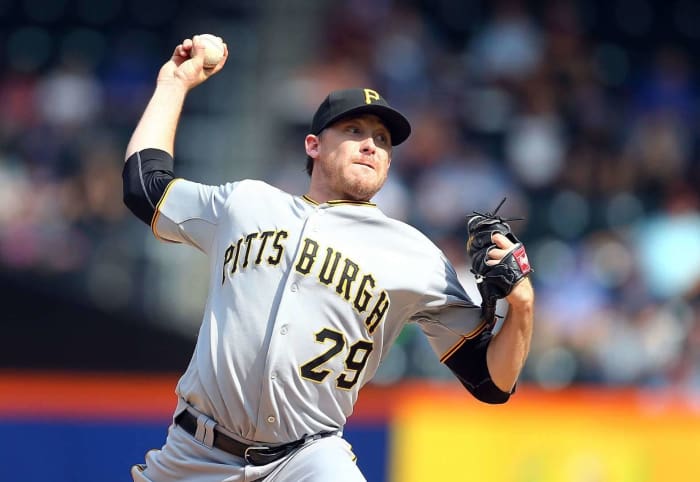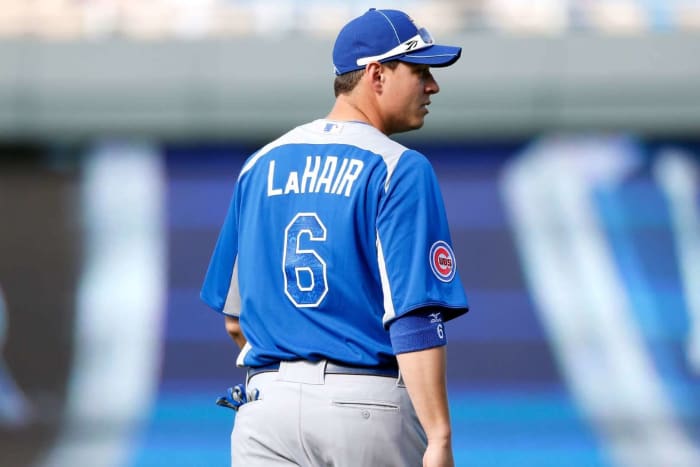You would think if a player was named an All-Star, he is a darn good player. However, sometimes players get named to the midsummer classic simply because someone has to go. Here, we chronicle the 25 worst MLB All-Stars of all time. Some of these players may have performed well in the first half of the year and some simply didn't deserve the All-Star nod, but all of these players put up shockingly bad numbers.
1 of 25
Chris Cannizzaro, C, 1969
Rogers Photo Archive / Getty Images
Veteran catcher Chris Cannizzaro got the nod for the expansion San Diego Padres, hitting a terrible .220-4-33 for the season and .245 at the break. Cannizzaro did have a long career in the majors, however, playing 13 seasons for six different teams.
2 of 25
Ellie Rodriguez, C, 1969
Rogers Photo Archive / Getty Images
The expansion Kansas City Royals needed an All-Star in 1969, and Rodriguez was it. Playing in his rookie season, Rodriguez hit only .236-2-20 in 267 at-bats for the season, though he was hitting .260 at the All-Star break.
3 of 25
Luis Aparicio, SS, 1971
Ron Kuntz Collection / Diamond Images / Getty Images
Sometimes All-Stars are sent based on their reputations. Aparicio certainly had a reputation as one of the great defensive contributors, but he hit only .232-4-45 for the Red Sox in 1971. Even worse: At the break, Aparicio was hitting a paltry .206.
4 of 25
Freddie Patek, SS, 1972
Focus on Sport / Getty Images
The Flea finished sixth in the 1971 AL MVP voting, but his follow-up effort wasn't great. The shortstop hit only .212 with no home runs and 33 stolen bases for the 1972 season, and he was hitting .230 at the break.
5 of 25
Steve Rogers, SP, 1974
Focus on Sport / Getty Images
Rogers managed to make the All-Star Game in a year in which he lost 22 games. Rogers was a workhorse for the Expos in 1974 with 38 starts and 253.2 innings, but he produced a 4.47 ERA and was responsible for 22 of the team's 82 losses. He had a 4.63 ERA and 10-11 record by the All-Star break.
6 of 25
Reggie Jackson, OF, 1983
Rogers Photo Archive / Getty Images
Jackson's selection was nothing short of a charity case in 1983, albeit on the downside of his Hall of Fame career. He finished the season hitting .194-14-49 and was hitting just .214 before the break. Perhaps his 39 homers from the prior season figured heavily into the selection.
7 of 25
Alfredo Griffin, SS, 1984
Focus on Sport / Getty Images
Griffin had an All-Star season that would make sabermetricians cringe, hitting .241-4-30 with four walks in 442 plate appearances. Despite a well-regarded glove, Griffin would be lucky to find the field regularly for his own team these days with that type of production.
8 of 25
Jay Howell, RP, 1987
Focus on Sport / Getty Images
Howell was a solid reliever for most of his career, but that didn't include his second of three All-Star selections, in 1987. He had a 5.89 in 36 appearances with 16 saves for Oakland and a 4.86 ERA prior to the break.
9 of 25
Sandy Alomar Jr., C, 1991
Focus on Sport / Getty Images
One season after winning AL Rookie of the Year, Alomar got the benefit of the doubt with his All-Star selection in 1991 for Cleveland. He hit .241 with a .592 OPS before the break and played only 12 games during the second half of the season.
10 of 25
Tyler Green, SP, 1995
Ezra Shaw / Getty Images
Green's All-Star selection in 1995 while with the Phillies was certainly the highlight of his career, which was only 70 appearances. He went 8-9 with a 5.31 ERA in 140.2 innings during the 1995 season but was great in the first half (2.81 ERA).
11 of 25
Roger Pavlik, SP, 1996
Stephen Dunn / Getty Images
Before the analytics age of baseball, pitcher wins were important. Such was the case with Pavlik, who went 15-8 with a 5.19 ERA for the Rangers in 1996. He finished the first half of the season with a 4.82 ERA but was 11-2 in 18 starts.
12 of 25
Paul Byrd, SP, 1999
Jamie Squire / Getty Images
Byrd made the All-Star team as a result of his 11-5 record with the help of run support and luck, considering his 3.94 ERA. He had a 5.61 ERA in 14 starts during the second half of the season, finishing 15-11 with a 5.60 ERA.
13 of 25
Ron Coomer, 1B/3B, 1999
Ronald Martinez / Getty Images
Every team needs at least one All-Star, which allowed Coomer to make the game as a Twin. He hit a respectable .263-16-65 in 1999 and was hitting .282-11-37 at the break.
14 of 25
James Baldwin, SP, 2000
Jonathan Daniel / Getty Images
Baldwin was 11-4 at the break in 2000 but had a mediocre 4.28 ERA for the White Sox. During the second half of the season, he produced a 5.27 ERA, finishing with a 4.65 ERA on the year.
15 of 25
Lance Carter, RP, 2003
Harry How / Getty Images
Carter didn't have a long career in the majors, but he did close for the Devil Rays in 2003. He produced 15 saves in the first half of the season for the lowly Rays but also had a 4.05 ERA — another case of an All-Star making the roster simply because of the team he played on.
16 of 25
Shawn Chacon, SP, 2003
Doug Pensinger / Getty Images
Chacon "earned" an All-Star appearance for the Rockies in 2003, finishing the season 11-8 with a 4.60 ERA in 23 starts. Those are strong numbers in the prehumidor era of Coors Field, but it's hard to believe the Rockies didn't have a better alternative.
17 of 25
Mike Williams, RP, 2003
Andy Lyons / Getty Images
2003 marked Williams' second consecutive All-Star appearance but also his final season. He was crowned Pittsburgh's representative, posting a terrible 6.44 ERA but converting 25 saves before the break. He finished the year with a 6.14 ERA.
18 of 25
Ken Harvey, 1B, 2004
Brian Bahr / Getty Images
Requiring an All-Star, Harvey was selected as Kansas City's best hitter in 2004. He hit .287-13-55 for the year, though those numbers were pedestrian for an All-Star first baseman. Harvey played only 12 MLB games after 2004.
19 of 25
Cesar Izturis, SS, 2005
Elsa / Getty Images
Fresh off a Gold Glove win in 2004, Izturis' bat came alive early in 2005 with a .342 batting average through the first two months of the season. However, he didn't really hit the rest of the way and had a .275 batting average and .660 OPS at the break.
20 of 25
Scott Podsednik, OF, 2005
Christian Peterson / Getty Images
Podsednik was an elite speedster for a short time and hit .294 with 44 steals by the break in 2005. That still wasn't worthy of an All-Star appearance given his complete lack of power, with a .344 slugging percentage at that point. Podsednik struggled the rest of the year, successful on only 15 of 29 stolen base attempts.
21 of 25
Mark Redman, SP, 2006
Elsa / Getty Images
Redman got selected for a bad Royals squad in 2006, finishing the season with a 5.71 ERA in 29 starts. He had a 5.27 ERA and as many walks as strikeouts before the break.
22 of 25
Derrick Turnbow, RP, 2006
Jim McIsaac / Getty Images
Turnbow became one of baseball's elite closers in 2005, but the same can't be said for his follow-up campaign. He made the All-Star team in 2006 despite finishing with a 6.87 ERA for the Brewers and a 4.74 ERA prior to the break.
23 of 25
Kosuke Fukudome, OF, 2008
Jim McIsaac / Getty Images
Fukudome took the Cubs by storm after coming over from Japan, garnering a starting nod for the NL All-Stars. He finished 2008 with respectable numbers, hitting .257-10-58 with a .359 on-base percentage. He had a .279 batting average before the break, making him a curious All-Star choice as a starter.
24 of 25
Kevin Correia, SP, 2011
Jim McIsaac / Getty Images
Correia made the All-Star Game with the Pirates in 2011, finishing the year 12-11 with a 4.79 ERA, including a 4.01 ERA before the break.
25 of 25
Bryan LaHair, 1B, 2012
Jamie Squire / Getty Images
A minor league veteran prior to 2012, LaHair got hot in the first half and hit .286-14-30 en route to an All-Star appearance. It was still a curious choice at a premium position, and LaHair hit only .202 with two homers the rest of the way before getting released at the conclusion of the year.

 +
+
